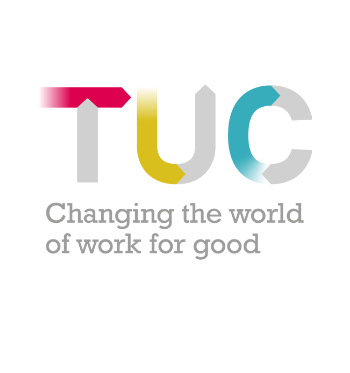Supporting LGBTQ+ workers
But while LGBTQ+ communities have seen lots of positive change in recent years, too many still don’t feel safe and comfortable at work.
Our new 10 step action plan aims to change this.
What problems can LGBTQ+ people face in the workplace?
LGBTQ+ people are more likely to face hatred in the forms of transphobia, homophobia, biphobia or other forms of hatred and discrimination. This can impact on their mental health, their confidence to progress at work, and their performance.
LGBTQ+ workers may have concerns about their safety when traveling to or from work, especially if they have to travel in the dark or on public transport.
Trans people’s experiences are diverse. However, many trans, intersex and gender non-conforming people report persistent transphobia, negative treatment, and aggression whilst in or searching for work.
Why LGBTQ+ rights are a trade union issue

As trade unionists we understand that being treated fairly in work is crucial, but that’s not guaranteed for LGBTQ+ workers.
Trade unionists have an important role to play in negotiating for changes in the workplace which can make life better for LGBTQ+ people. This can range from things like allowing workers to express their pronouns to reviewing the bullying and harassment policy.
Wales TUC has created a simple guide including 10 steps you can follow make your workplace more inclusive for LGBTQ+ workers.
- Where can I get help with LGBTQ+ rights in the workplace?
-
Talk to your union rep for support. Share the 10 steps towards LGBTQ+ inclusive workplaces with them.
Stonewall Cymru can also offer support.
- Campaigning on LGBTQ+ rights in the workplace
-
You can make a difference by joining a union and then working with colleagues to take up LGBTQ+ rights issues up with your employer.
Not a member? Join a union today – use our union finder tool to find the right one for you.
Use our 10 steps towards LGBTQ+ inclusive workplaces guide for help with talking to your employer about LGBTQ+ rights.
LGBTQ+ History Month
LGBTQ+ History Month (February) can be a good time to launch a workplace campaign.
Many workplaces will outwardly celebrate LGBTQ+ History Month without taking actions to support their own workers. This is not acceptable and workplaces which are only taking performative actions without improving the culture and conditions for workers, need to be called out.
Work with your employer to make sure that they don’t just pay lip service and that they follow up any celebrations with meaningful action for the benefit of LGBTQ+ people.
Here are some questions to ask yourself ahead of using LGBTQ+ History Month to campaign in your workplace:
- Has any work on LGBTQ+ issues been created in partnership with LGBTQ+ people?
- Is your employer providing support opportunities for LGBTQ+ workers within the organisation and creating meaningful internal change too?
- Is your employer taking actions throughout the year?
- Is this work action orientated and being revisited regularly?
- How can I support someone facing issues because of their sexual orientation or gender reassignment as a rep?
-
Usually if a person genuinely feels they are being singled out for unfair treatment by a boss or colleague they are probably being bullied, and there is certainly an issue that needs to be addressed.
There are a number of positive steps that union representatives can take to raise awareness and tackle bullying in the workplace.
- Use posters and leaflets to raise the issue of bullying with members and take the opportunity of discussing bullying with them to see if they think that there are any problems. Safety representatives should report their concerns and those of their members to management.
- Safety representatives can use their routine inspections, or undertake special inspections to speak to members about bullying at work.
- One of the best ways of assessing the scale of bullying within the workplace is to survey members. This can gather evidence on the scale and extent of bullying in the workplace and can either be done by the union or jointly with management. Any survey must be strictly confidential, but it is important that staff receive information on the overall findings from the survey. The results from any survey can help employers develop a policy on dealing with bullying and can also be of use in trying to change the behaviour of individual managers and staff.
- How can I support workers who are transitioning, as an employer?
-
Trans people’s experiences are diverse. However, many trans, intersex and gender non-conforming people report persistent transphobia, negative treatment, and aggression whilst in or searching for work.
Workplaces need to take preventative action to stop transphobia being allowed to take place. This means taking positive action within the workplace to help create a welcoming and inclusive culture whether you have any identified trans staff or not. This can include creating a culture which allows LGBTQ+ people in your organisation to tell you what can be improved on.
It’s crucial that if you receive reports of transphobia such as harassment, discrimination or unfair treatment towards a trans worker, that you act quickly to resolve it.
Checklist for supporting workers who are transitioning
- Ensure that your workplace has included gender identity and gender reassignment in equal opportunities and HR policies. This should include fair recruitment and selection processes.
- Check other policies and procedures – such as recruitment policies, record-keeping and dress codes – to make sure that they do not discriminate against trans people.
- If your workplace has dress codes, ensure that workers are allowed to wear the clothes that align to their gender identity. If there is no dress code, you can proactively state that workers should feel comfortable to express their gender in whatever way feels comfortable to them.
- Provide workers undergoing gender reassignment with paid leave from work for any medical appointments or procedures as appropriate.


